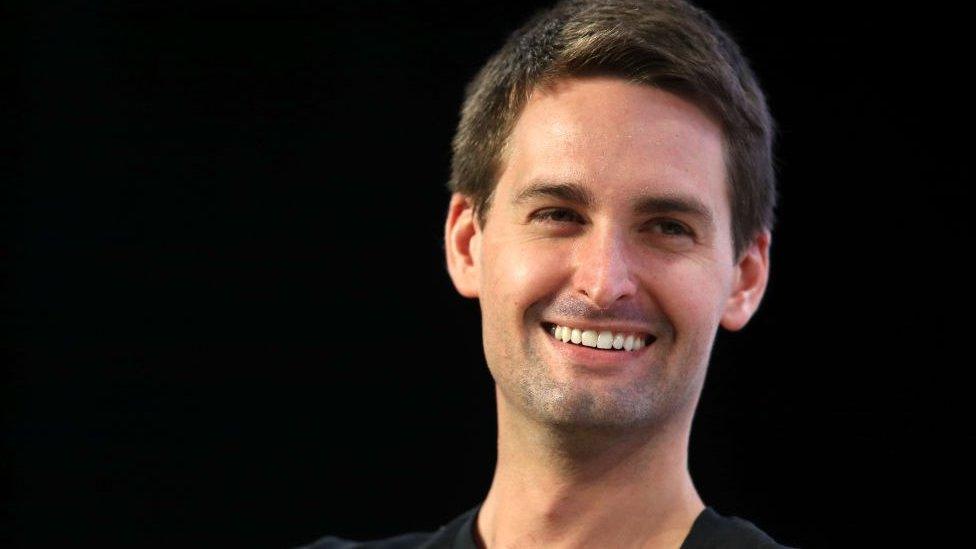Snapchat boss: US faces ‘century of competition’
- Published

The US is entering a new era of global competition and the country needs to invest much more in future generations, the boss of Snap has told the BBC.
Evan Spiegel, whose firm includes the Snapchat app, said the US faces a "century of strategic competition" from fast-growing economies like China.
"This is not something we have confronted before," he said.
Mr Spiegel, who was guest editing Radio 4's Today, said the US needed to think long-term to compete in the future.
Mr Spiegel, who launched Snapchat while studying at Stanford University and became one of the world's youngest billionaires at the age of 25, also said he would be "happy" to pay more taxes.
He feels that it was "inevitable" that Silicon Valley tech firms have grown in power due to the advent of the internet, and that it was "reasonable" for there to be increased regulatory scrutiny of tech giants.
Snapchat hit almost 250 million daily users in October.
However he stressed that governments and technology have a symbiotic relationship, and that if tech giants pay more taxes, at least some of that money needs to be put back funding research into developing new technologies like artificial intelligence.
"The history of great nations really tends to be built on huge breakthroughs in technology and a lot of times that technology is founded on government investment," he explained.
"I think it's really easy today in our political system to focus on the failures, rather than these amazing successes.
"Regulation is only one part of a comprehensive technology strategy - the rest of it really has to be oriented around...investment in new technology."
Moon landing
He predicted that within 10 years, the world's largest economies will be China and the US and India. "We're entering this new era of global competition," he said.
That means the US needs to look forward, while learning lessons from the past.
He pointed out that some of the US's really big projects, like putting a man on the moon, were a result of a partnership between private and public companies and organisations.
"Even the internet was really a government-funded research project," he said.
"All of these really tremendous successes that we've had as a country have come as a result of teamwork."
Consequently "it is important for us to think about what our investment priorities are and where the United States is going to invest strategically, to really secure its future."
He is positive about the future despite the challenges.
"We're likely to be on the verge of an American reinvention.
"There is a huge potential to invest in the long-term and realise the potential of all of the extraordinary human capital that has yet to be unlocked.
"With a really clear vision for the future, and teamwork, the future is very bright."